Move Over Rote Learning: Unique Mumbai School Helps Slum Kids Study Better!
Khoj Community School was established under the Apni Shala Foundation, an organisation that works towards making life skills education accessible to children from government schools and low-income communities in Mumbai.
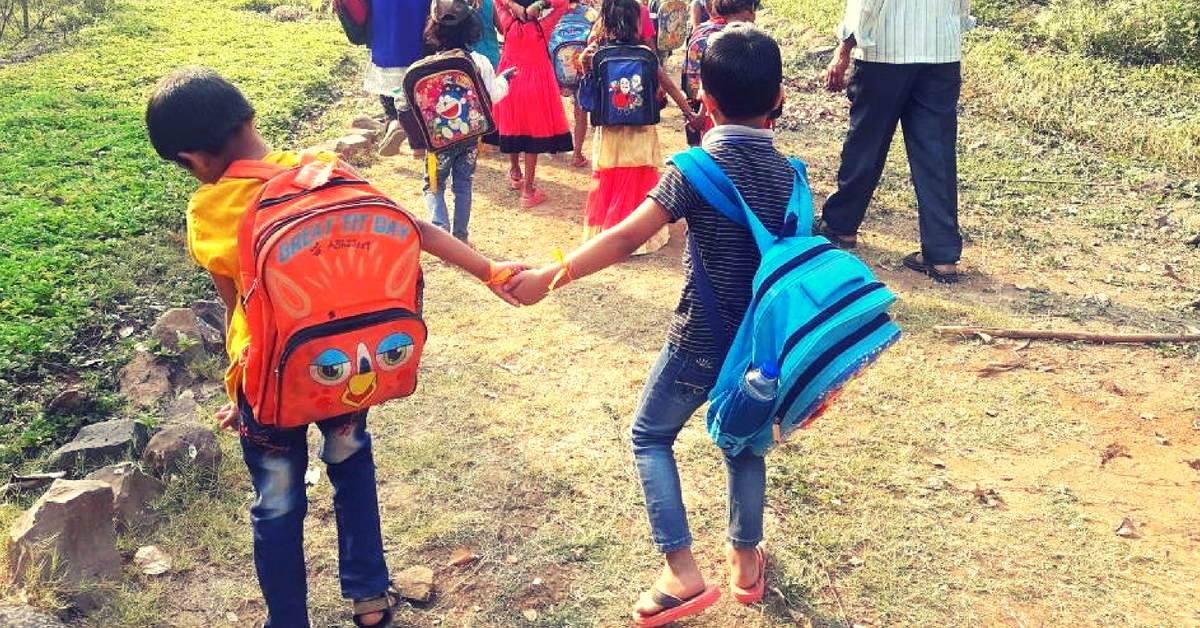
In the content-driven world that we live in, education is an asset that should reach every child as a prerequisite.
By education, we do not mean the rote-based learning that most schools across India bestow, where something beyond the blackboards and curriculum is rarely even attempted, but a holistic form of imparting knowledge, that would help children to look forward to attending school, and help them go beyond memorising topics or scoring marks.
Most of us are accustomed to this form of teaching, and if you look back, our school curriculum didn’t really comprise any content that would have fostered our social and emotional development—something that we have come to understand has prime importance in our adult and professional lives.
This is particularly important for schools in low-income regions where the number of students is much higher than recommended, and teacher per student interaction can barely be accounted for.
Three driven youngsters in Mumbai, who had been actively working and volunteering in the education sector for a while, found that beyond the four walls of classrooms, little was being retained by children in terms of learning, especially in schools established for children from low-income communities.
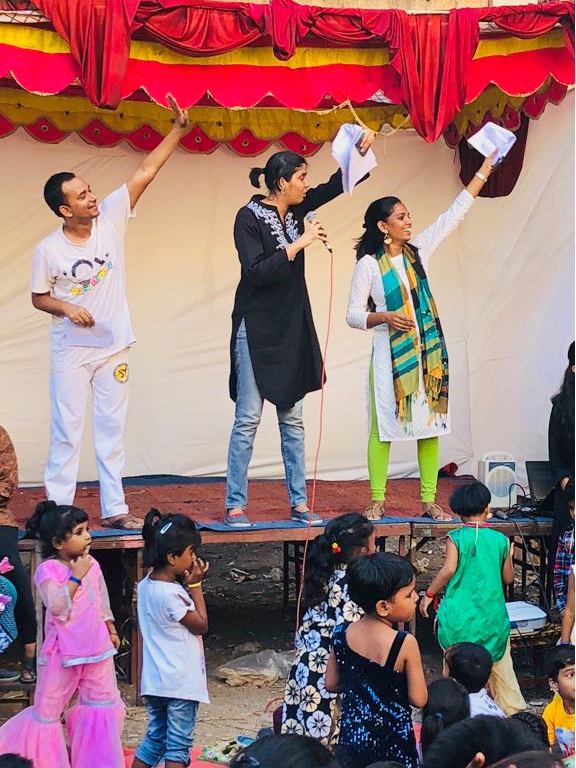
“What if our children could attain/participate in an education which empowers them to transform their lives not in spite of their socio-economic or cultural differences but because of it? What if our children could pursue the concepts, that are important to them and their communities and take active ownership of their lives and community? What if multiculturalism is an asset, that it truly is, and not a roadblock to a child’s educational experience?”
With these beliefs, Amrita Nair, Sangeeta Zombade, and Rohit Kumar set out on a journey to provide quality education to children from lesser privileged sections of the society and founded the Khoj Community School in Mankhurd’s Lallubhai Compound last year in June.
“The Khoj Community School envisions creating joyful and experiential education opportunities for students to explore and pursue their dreams, and develop skills and attitude to engage with and thrive in the multicultural, diverse and dynamic world through action and reflection,” says Rohit to The Better India.
Now in its second year of functioning, about 52 students and their families are associated with Khoj, which was established under the Apni Shala Foundation, an organisation founded by Amrita that works towards making life skills education accessible to children from government schools and low-income communities in Mumbai.
Compared to RTE prescribed teacher-student ratio of 1:30, Khoj adheres toa ratio of 1:26 and each of the teaching staff at the school undergo on-going training for Seeking Educational Equity and Diversity (SEED), that has been proven to actively help integrate multicultural education through curriculum, policies, and processes.
Besides, Rohit mentions that these teachers are also offered distributed leadership opportunities to collaborate and develop their interdisciplinary and cognitive growth.
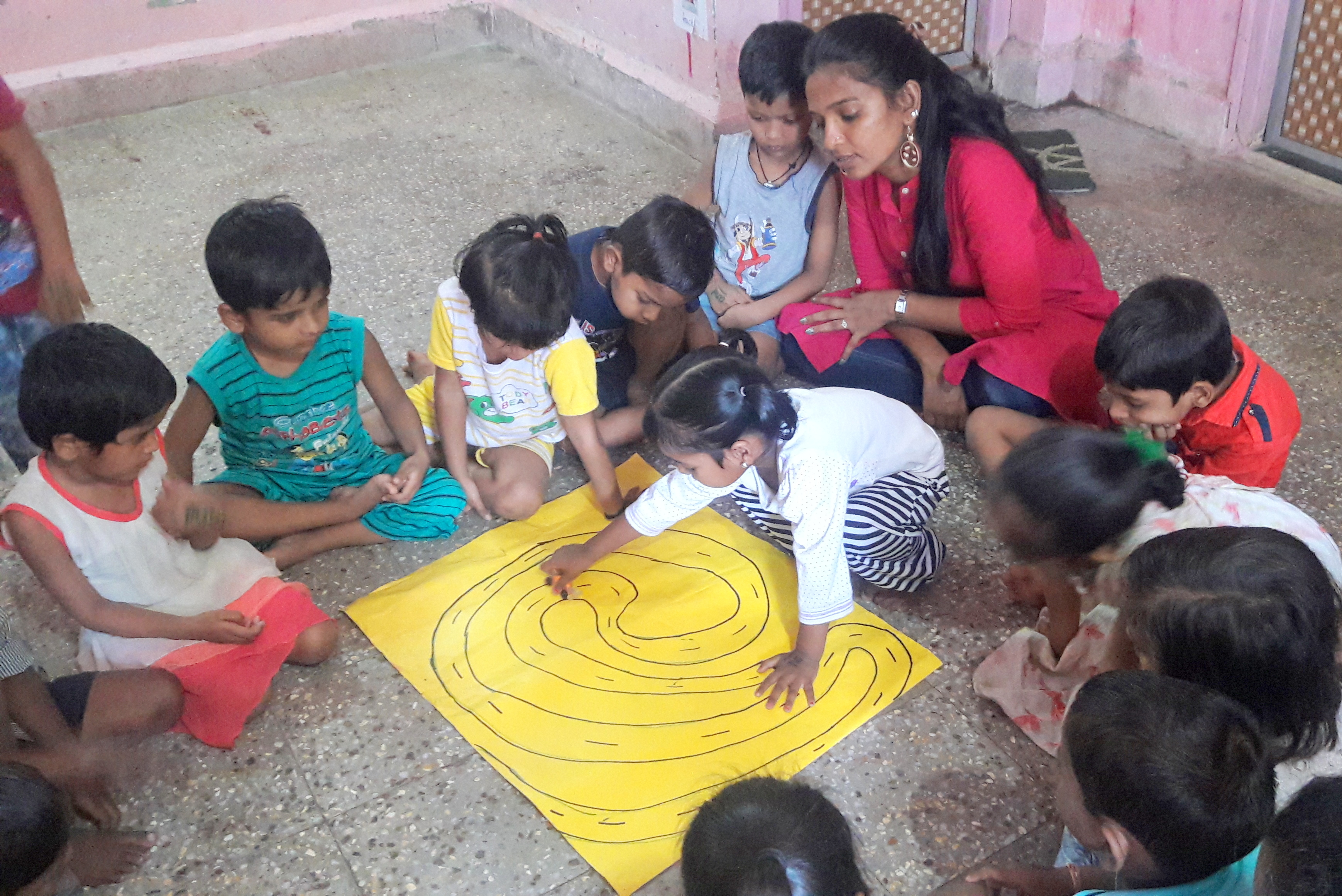
Starting with kindergarten, the school is modelled on the structure of including the next standard with each passing year until grade 10 and aspires to serve as a lab school for contextually relevant research, training, and development for advanced educational practices in India.
“To offer a high quality, contextually relevant and Social and Emotional Learning (SEL) integrated education to our students, the school is rooted into the following core principles: Concept-based Curriculum, Multicultural Education and Community Development,” says Rohit, who quit his job to be engaged in the education sector not as a volunteer but as a change maker.
So, what does Concept-based Curriculum mean and how does it foster holistic education?
Concept-based curriculum and instruction is a three-dimensional design model that frames factual content and skills with disciplinary concepts, generalisations, and principles.
“For example, a program of inquiry, let’s say, ‘Sharing the Planet,’ can run across different grades and subject areas and would look different at different ages. In kindergarten, students would learn about plants, animals, and diversity while exploring names and habitation in language and counting in math. In the upper primary, students would learn about environmental sustainability while learning about climate change in science and elocution in language. In secondary school, students may learn about production and distribution of resources on the planet while learning about research in language, statistics in math and wealth and resources in economics,” Rohit explains.
Other tenets identified under the curricular structure of Khoj include multicultural education and community development activities.
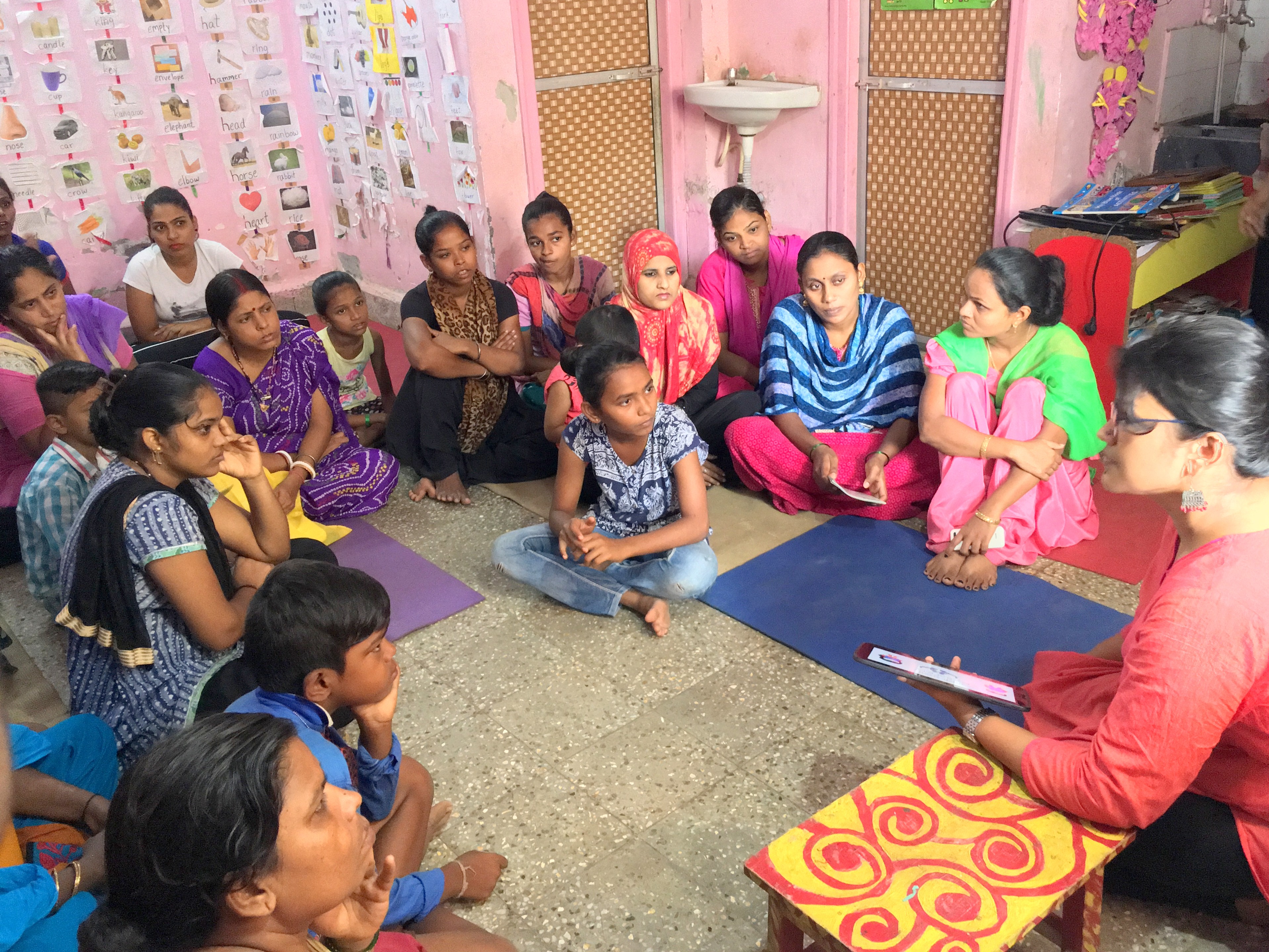
“Numerous studies have demonstrated that the diversity of a school directly contributes to the quality of its students’ education. Exposed to a variety of perspectives, students learn to think critically, to challenge their assumptions, and to explore alternative approaches and solutions to real-world problems. Students are given the pedestal to bring their personal backgrounds and histories to the classroom, and their classmates and their teachers are richer for that gift,” Rohit elucidates.
As for community development, the school believes that for the holistic growth of its students, every family member has to actively engage in their ward or sibling’s progress and Khoj puts together various initiatives and activities to realise this paradigm.
An incredible aspect about Sangeeta, one of the founders of the school, is that she was once an inhabitant of the very same slum in Mankhurd. She found a way to break the existent gender and socio-economic barriers in the country through education and decided to spend the rest of her life towards the cause of providing quality education to children who couldn’t afford it.
This makes the foundational pillars of Khoj even stronger as there is an insider understanding of what kids from these communities lack in terms of education and how that can be countered.
Though Apni Shala is currently managing the funds of the school, the founders of Khoj hope to raise more money to help the school with better resources and facilities for the children and have teamed up with crowd-funding portal Milaap for the same.
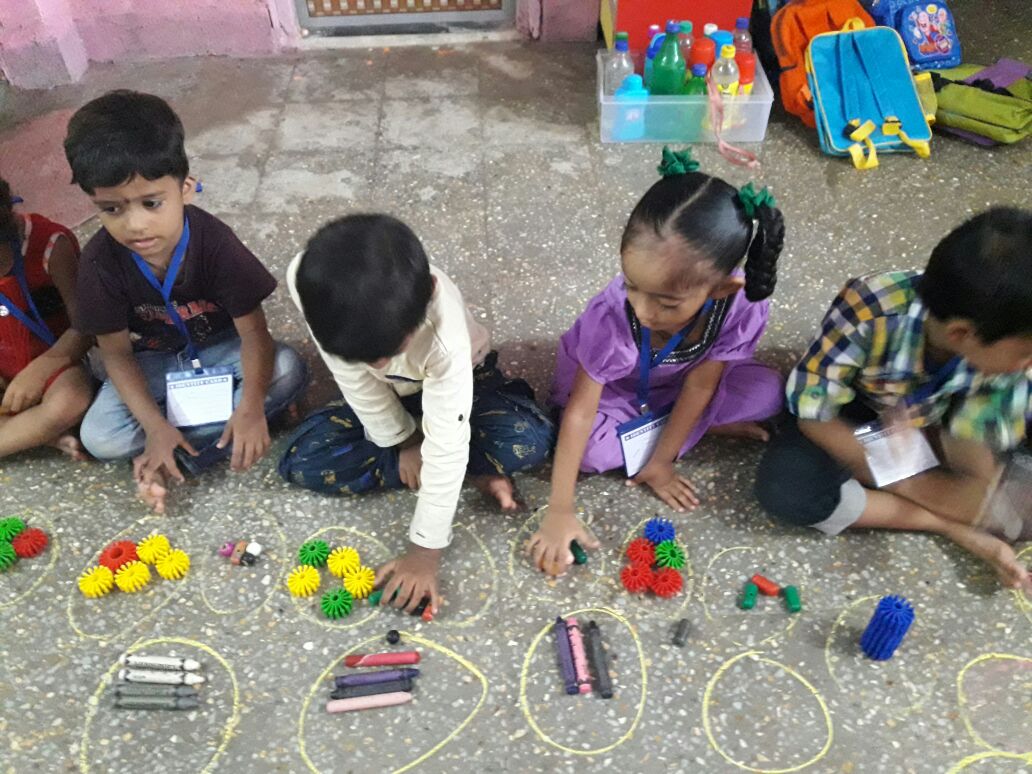
You can help the Khoj Community School expand its wings and boost the much-needed change in our education sector, but more importantly, avail children from the lesser-privileged sections of the society chase bigger dreams. To contribute, click here.
You can also reach out to the folks behind the Khoj Community School at [email protected] or call at 9833809260.
(Edited by Gayatri Mishra)
Like this story? Or have something to share?
Write to us: [email protected]
Connect with us on Facebook and Twitter.
NEW: Click here to get positive news on WhatsApp!
If you found our stories insightful, informative, or even just enjoyable, we invite you to consider making a voluntary payment to support the work we do at The Better India. Your contribution helps us continue producing quality content that educates, inspires, and drives positive change.
Choose one of the payment options below for your contribution-
By paying for the stories you value, you directly contribute to sustaining our efforts focused on making a difference in the world. Together, let’s ensure that impactful stories continue to be told and shared, enriching lives and communities alike.
Thank you for your support. Here are some frequently asked questions you might find helpful to know why you are contributing?


This story made me
-
97
-
121
-
89
-
167











